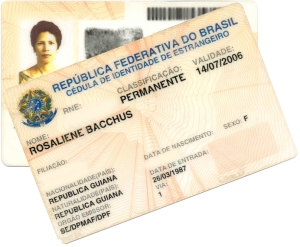Tags
CAFTA, California Dream Act, California Governor Jerry Brown, Corporations, Illegal immigrants, NAFTA, The Dream Act, Undocumented immigrant students
The Dream Act (Development, Relief and Education for Alien Minors) was first introduced in the US Senate in 2001. Under this Act, only immigrants who entered the United States at ages 15 and under, and have completed elementary and secondary education in the US will qualify for citizenship. But it is no give-away of Green Cards.
Under the rigorous provisions of the Dream Act, qualifying undocumented youth would be eligible for a 6 year long conditional path to citizenship that requires completion of a college degree or two years of military service (dreamact.info).
Moreover, the Dream Act does not require states to provide any benefits to undocumented students, nor does it make these students eligible for federal financial aid (naca.net.org).
In a December 2010 Report, the Congressional Budget Office and the Joint Committee on Taxation calculated that approval of the Dream Act would reduce US deficits by about $1.4 billion over the period 2011-2020 and increase government revenues by $2.3 billion over the next 10 years (cbo.gov).
Legalizing workers increases income tax revenues. Also, incomes generally increase for college-degree workers, thereby increasing tax revenues. Yet, when re-introduced in May 2011, the bill failed to pass.
So why is there gridlock on passing this legislation? Mostly fear as far as I can see:
- Fear that more people will illegally invade the United States.
- Fear that rampant fraud will infiltrate the application process for citizenship.
- Fear that competition will increase for limited places in public universities and community colleges.
- Fear that illegal parents of qualifying minors will gain “backdoor amnesty.”
Perhaps, there is also another fear, not publicized:
- Fear that cheap, undocumented workers willing to break their backs and work long hours on our farms and in our factories will evaporate.
I do not know the answer to our immigration conundrum. In the hands of our politicians, it becomes a sword and a palm leaf. My fears about migrating to Brazil, and later to the United States, can fill this page. The majority of those fears did not materialize.
As a former international trade professional, I know that while our trade practices benefit American corporations, they impoverish small farmers and producers. Evidence abound that our NAFTA and CAFTA free trade agreements have increased poverty in Mexico and Central America.
People facing starvation and, in some cases, death under dictatorship governments supported by giant corporations will penetrate national borders.
I applaud California Governor Jerry Brown in taking the first positive step of dealing with the needs of our undocumented immigrant youth. The California Dream Act, signed in October 2011 and effective on 1 January 2013, will qualify them for state-funded financial aid for college. To take advantage of these benefits, they must prove they are in the process of legalizing their immigration status.
At last, there is hope for Antonio and thousands like him who live among us. I would like to think that some day, as a mathematics teacher, Antonio will inspire his students to achieve great things for America.





